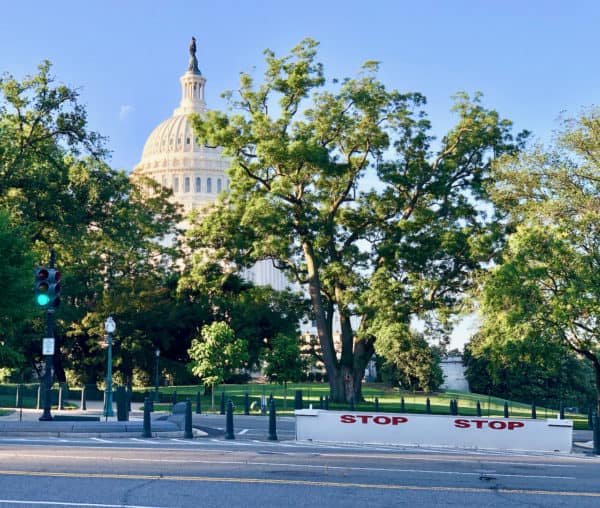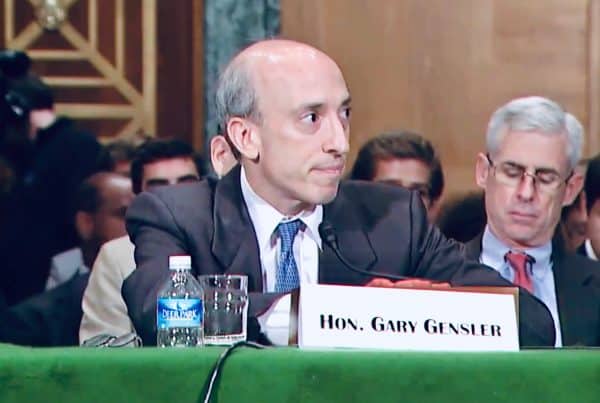
In late January, the Securities and Exchange Commission (SEC) proposed amendments to the Exchange Act and the definition of an Exchange as well as Regulation ATS (Alternative Trading System). The proposal was opened to comments with a deadline of this week (April 18). The SEC describes the proposal as follows. The SEC proposes to:
-
- Expand Regulation ATS for alternative trading systems (ATS) that trade government securities, NMS stock, and other securities;
- Extend Regulation SCI to ATSs that trade government securities; and
- Amend the SEC rule regarding the definition of an “exchange” to address a regulatory gap.
 While not mentioning digital assets, blockchain nor crypto anywhere in the document, some industry insiders believe the proposed changes are a veiled attempt to alter the environment for digital assets as SEC leadership effectively believes that most, if not all, digital assets are securities. Current SEC Chairman Gary Gensler has frequently attacked crypto exchanges, and other digital asset marketplaces, as needing greater regulation and investor protection. Regulatory amendments may provide this, in lieu of Congressional legislation.
While not mentioning digital assets, blockchain nor crypto anywhere in the document, some industry insiders believe the proposed changes are a veiled attempt to alter the environment for digital assets as SEC leadership effectively believes that most, if not all, digital assets are securities. Current SEC Chairman Gary Gensler has frequently attacked crypto exchanges, and other digital asset marketplaces, as needing greater regulation and investor protection. Regulatory amendments may provide this, in lieu of Congressional legislation.
The Fact Sheet created by the SEC, entitled Investor Protections in Communication Protocol Systems and ATSs, is viewable here for a summary. The document filed with the Federal Register is downloadable here or viewable here.
In response to the proposal, a high-profile group of digital asset industry insiders has submitted a comment letter addressing the potential changes. The group includes several organizations including: The Digital Asset Regulatory & Legal Alliance (DARLA), Global Blockchain Convergence (GBC), and Global Digital Asset & Cryptocurrency Association (Global DCA). Collectively, the group addresses the industry risk created by the current language of the proposed amendments, specifically the attempt by the SEC to expand the definition of an Exchange.
According to the comment letter, the proposed amendments would “bring within the meaning of “exchange” many new platforms that are not currently contemplated under either Rule 3b-16 or the Exchange Act.” It is the opinion of the group that this would be contrary to the “Exchange Act, contrary to the Administrative Procedure Act, and contrary to the Commission’s prior precedents because it proposes regulation on a multitude of platforms that simply do not engage in the activities of an exchange as contemplated when Congress adopted the Exchange Act.”
The letter states:
“If implemented, the Proposal would regulate many more market participants as exchanges which do not have some or any of these essential features of a securities exchange.”
The essential features mentioned are related to the operations of a traditional stock exchange.
The group worries that the proposed amendments go beyond the Commission’s statutory authority but will “also result in a variety of negative consequences, whether intended or unintended.” Importantly, the group believes that proposal will undermine innovation and competition in the US, while providing “limited benefits” for the investing public.
“A large number of market participants that may fit the definition of CPSs [communication protocol systems] are early-stage technology companies that have not traditionally been subject to regulation by the federal securities laws. The Proposal provides no firm rationale or evidence explaining why regulation of these platforms is now required. Imposing significant regulatory burdens on companies that simply facilitate communication may have the unintended consequence of driving many early-stage technology companies offshore or out of business. This result makes no sense for companies that did not intend to offer a securities exchange business. As such, the Commission will be inadvertently hindering financial innovation by implementing the Proposal as currently drafted.”
The rule change, as it stands today, may have “disastrous effects” on the technology sector, according to the letter.
The current Commission appears to have charted a path of investor protection without any concern for the collateral damage that may be included in any regulatory changes. Digital assets, a new asset class that may be a security, a commodity, or perhaps – something else, do not fit nicely into rules and laws created many decades ago. Recently, the United Kingdom made a strong statement in support of the emerging crypto-asset sector. The Chancellor of the Exchequer stated it is their ambition to make the UK a “global hub for crypto-asset technology.” Certain US policymakers are beginning to look out of step when it comes to Fintech innovation and, more specifically, digital asset innovation – a sector that requires regulation, but regulation that enables innovation and empowers entrepreneurs.

